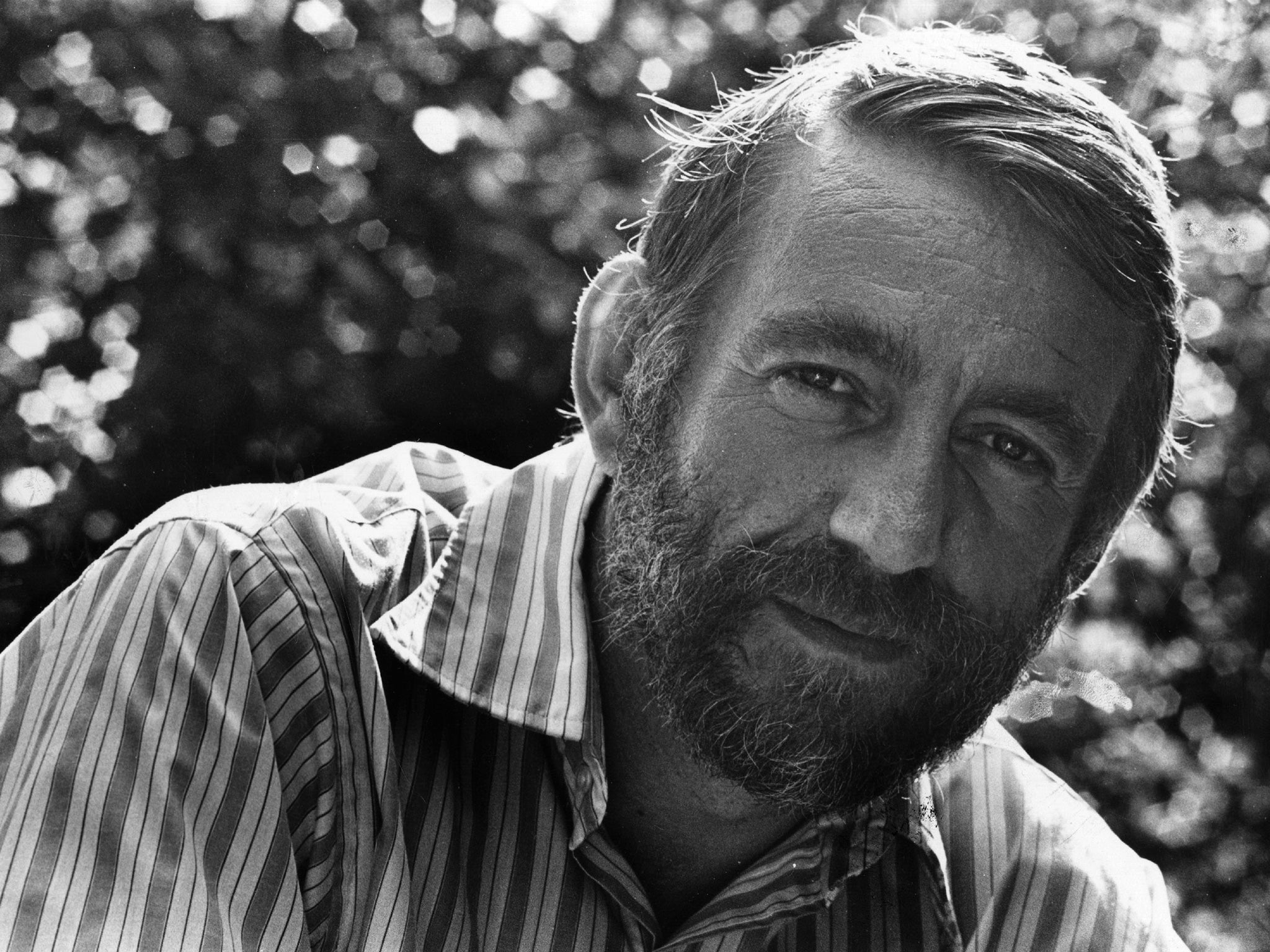Rod McKuen: Poet, songwriter and distinctively voiced singer who was nominated for an Oscar and worked with Jacques Brel and Frank Sinatra

In the early 1970s the singer, songwriter and poet Rod McKuen was loved and loathed in equal measure. His sentimentality was too much for some but if it bothered him, he never revealed it publicly. He said, “I have a style which is uniquely mine.
I like to think there is only one Rod McKuen.” Another stumbling block was his croaky voice, although it was ideally suited to his whispered poems and songs of lost love. “I have a range of two octaves,” he once told me, adding with a wink, “On a clear night you can hear John Denver.”
He was born in 1933 in a Salvation Army hostel in Oakland, California and raised by his mother and an abusive, drunken stepfather. He left home as soon as he felt able to support himself and he dug ditches, felled trees and worked as a ranch hand. He kept a diary of his experiences which would fuel some of his poetry. As a late night radio DJ in Oakland he read poems in between the records.
In 1953 he was conscripted to Korea, prompting his pacifist song, “Soldiers Who Want To Be Heroes”. (“Soldiers who want to be heroes, Number practically zero, But there are millions, Who want to be civilians.”) He recorded this himself, while another song relating to those days, “Doesn’t Anybody Know My Name”, was recorded by Vince Hill in 1968.
In 1956 McKuen became a bit part player at Universal, appearing in Rock Pretty Baby (1957), and he befriended Rock Hudson. He thought that Hudson had a good singing voice and in 1970 he produced his album, Rock Gently. In 1959 he wrote a parody single, “The Beat Generation”, for Bob McFadden but he was making little money and in one month he sold six pints of his blood. In 1961 he might have had his own hit with “The Oliver Twist”, but he strained his voice through too many promotional appearances and when it returned, it was a hoarse whisper.
In 1963 he wrote a US hit for the Kingston Trio, “Ally Alley Oxen Free”, and gave them an English lyric for Jacques Brel’s “Le Moribond”, which he called “Seasons In The Sun”. Pleased, Brel took McKuen’s “The Lovers” and released it as “Les Amants de Coeur”. McKuen’s best known lyric for Brel is the standard “If You Go Away (Ne Me Quitte Pas)”, but “Seasons In The Sun” became a transatlantic No 1 for Terry Jacks in 1974. Both McKuen and Mort Shuman were writing English lyrics for Brel songs and there are two different lyrics for “Amsterdam”. McKuen translated other European writers and Gilbert Bécaud’s “The Importance Of The Rose” was made popular by Vince Hill and Francis Lai’s “I Think Of You” by Perry Como.
When Glenn Yarbrough recorded McKuen’s poem, “Stanyan Street”, for an album, the record company asked him where it came from. McKuen replied that it was from a new book Stanyan Street And Other Sorrows and this information was printed on the sleeve with a box number. The orders came in, and in a mad whirl McKuen wrote and published the collection within a couple of weeks. It was to sell 60,000 copies and led to a deal with Random House. His musings, Listen To The Warm (1967), sold over a million copies and was recorded by McKuen as a narrative album with strings. In 1968 he won a Grammy for the Best Spoken Word Recording, Lonesome Cities.
In 1968 McKuen wrote the music for Joanna, a British film directed by Mike Sarne, and the following year was nominated for an Oscar for his song “Jean” from The Prime Of Miss Jean Brodie. The producers of Goodbye Mr Chips (1969) asked several composers, including McKuen and Leslie Bricusse, to write songs for a remake starring Peter O’Toole and Petula Clark. Although the film only used Bricusse’s songs, McKuen released his songs separately. In 1971 he was nominated for his score for the animated film, A Boy Named Charlie Brown.
In 1969, he persuaded Frank Sinatra to record an album of his poems and songs, A Man Alone. It included the hit single “Love’s Been Good To Me” and the poem “Beautiful Strangers”, in which casual lovers praise Frank’s (but really Rod’s) “flat little stomach”.
McKuen built up a UK following with his BBC series The Rod McKuen Show, best remembered for his sidekick, Mr Kelly, an Old English sheepdog. Several of his poems were about cats, especially Snoopy, who was more faithful than his lovers. McKuen toured the UK giving concerts in sweatshirt, jeans and sneakers, always signing books, albums and posters. You can gauge his popularity from Rod McKuen At Carnegie Hall (1974); he closed every concert by saying, “It doesn’t matter who you love or how you love, but that you love.”
Few performers have so milked their popularity. His Stanyan Street mail order catalogue contained over 200 Stanyan albums, 82 by McKuen, as well as 22 of his poetry books and souvenirs galore. He released concertos and symphonies; the catalogue even included The Rod McKuen Marriage Ceremony, “a major non-denominational interpretation of the marriage commitment by the world’s foremost romantic spokesman.” The world’s foremost romantic spokesman was unmarried.
Around 1983 McKuen stopped pushing himself so hard and retired to his Beverly Hills mansion, although he still sold products by mail order. Time has not been good to his reputation but it can be viewed as a brilliant example of self-promotion.
Rodney Marvin John Michael James McKuen, poet, singer and songwriter; born Oakland, California 29 April 1933; died Beverly Hills 29 January 2015.
Join our commenting forum
Join thought-provoking conversations, follow other Independent readers and see their replies
Comments
Bookmark popover
Removed from bookmarks